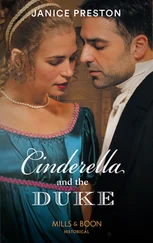‘Literature, or so she says. Dante and Boccaccio this year, but you wouldn’t know it to speak to her. She’s out at dances most of the time, home late, connecting with heaven knows whom.’
He looks more closely at Esmond, a slice of apple paused on the approach to thin lips.
‘You might befriend her, Esmond. I feared you wouldn’t encounter enough young people, cooped up here with — hum — the aged adviser. And she would surely benefit from the company of someone as sensible and purposeful as you. Yes, this really is very good.’ He smiles and pops the apple into his mouth.
‘I’ll do my best.’
‘Capital.’ Goad rises. ‘I must prepare my lessons. Our students return from their Easter vacation on Monday. You’ll find the place quite different when they’re around. Serious young fellows, most of them, but I do enjoy the peace of the holidays. Good night.’
Esmond waits for a few minutes and then, careful to ensure that no one sees him, makes his way up, the three-quarters full bottle of wine in one hand, glass in the other. He closes his door, fastens the shutters and windows and switches on his desk lamp. Pouring out a glass, he sits at the desk and picks up his pen.
Florence is beautiful, he writes, imagining Philip in a Viennese tearoom, white marble tables and clever laughter. I’m staying at the British Institute. It’s in the heart of the city, a fifteenth-century palace. Lots of dark passageways and tapestries. You imagine turning a corner and finding Michelangelo arguing with Ficino. He takes a sip of his wine and lights a cigarette. I can’t tell you how glorious the Uffizi is . He wonders where Fiamma is now. On the dancefloor of some half-lit nightclub, a pack of wolfish boys around her. I worry about you. I always look out for Vienna in the newspaper. If you get a chance to leave, you should. Tanti auguri (as the locals say!), Esmond.
He folds the letter into an envelope. Pouring another glass of wine and picking up his towel, he makes for the bathroom. Filling the bath so hot that a bank of steam hovers above it, he lowers himself into the water, cups his glass and reclines. He feels Philip’s absence in the groan of his stomach. He remembers a day in May when they’d cycled to Grantchester, the sun on Philip’s tanned shoulders, the sudden shower that sent them into the cover of bushes, the damp grasping for each other as the rain pounded around them and their lips became two wet, living things. He remembers sitting with Philip in F. R. Leavis’s lectures, the older boy with his hand on Esmond’s thigh, and then in the saloon bar of the Pickerel, where they drank with Leavis and talked until closing about Russian novels and the book-buttressed adventure their lives would be.
With Philip, something had loosened within him, his childhood lifting under the beam of the older boy’s careful love. Until then he’d felt himself, before anything else, his father’s son. At Cambridge he was pointed out as Sir Lionel Lowndes’s boy, scion of the second family of the British Union. People were surprised he wasn’t in black. On Philip’s arm, he felt himself different, decent.
He lets the bath run out with a gurgle and goes back to his room. He puts on his nightshirt, reads for an hour and then sleeps. In his dream, Fiamma and Philip are together, dancing with the clever, cautious footsteps of the cat on the pavement outside San Gaetano.
At a quarter to nine, Esmond walks through the courtyard of the Institute, past the portrait of the dead King, out onto via Tornabuoni. A light drizzle, little more than mist, pearls on the manes and tails of the horses. Bicyclists pass with umbrellas held high and the window of Doney’s is steamy with breakfast. An old woman steps from a cab into Pretini’s hair salon, tutting. Esmond turns up the collar of his mackintosh and makes his way onto the via degli Strozzi.
By the time he gets to the Piazza della Signoria, the shower has passed and a tentative sun emerges. People come out of shop doorways, furl their umbrellas and wait for their trams. He wafts his letter from Il Duce and is ushered through a silent inner courtyard where gargoyles spew from the capitals of columns, then to a wooden bench in a gilded hall, where the guard asks him to wait.
Small, well-dressed men hurry back and forth, heads down. Occasionally a Blackshirt, skull and crossbones on his chest, marches past. Esmond draws A Room With a View from his pocket and begins to read. After a few minutes, a peroxidial secretary shows him into the mayor’s office. The Podestà sits at a large desk between two windows, one of which is open to the morning. Over his right shoulder, against the brightening sky, stands a stocky figure with his back to the room, looking down to the banks of the Arno. The mayor gestures towards one of the armchairs facing him.
‘Please, Mr Lowndes, have a seat.’ He opens a silver cigarette case and holds it out.
Esmond takes one, tilts forward to accept a flame and sits. The Podestà lights his own cigarette and leans back.
‘My name’, he says, ‘is Count Alfonso Gaetano.’
Esmond smiles shyly. ‘Like the church,’ he says.
The mayor raises an eyebrow. ‘I had the pleasure of meeting Sir Oswald when he and his late wife came to visit some years ago. A most remarkable man. Now this project of a wireless broadcast to educate our citizens, to forge ties between the right-thinking men of your country and ours. Bravo! Mussolini himself has given his full support. If I, humbly, may be of any assistance at all, you must tell me.’ He reaches across and presents a creamy card with his full title in loping cursive.
‘Decent of you,’ Esmond says. At this moment, a butterfly, a cabbage white, flutters blithely into the room, borne up on a breeze from the river. It pauses for a moment on the windowpane, opening and closing its wings. The stocky figure at the window shoots out a plump hand and crushes the insect against the glass with his thumb, leaving a green smear. The mayor turns at the sound.
‘I must introduce you to our local communications expert, Mario Carità.’ The man, unhealthy-looking in black shirt and grey flannel shorts, inspects his thumb for a moment and turns to face them. He looks, Esmond thinks, like a pickled schoolboy, save for a streak of white in quiffed hair and his eyes, hard and black and glassy.
‘Carità will fix you up with your studio, with all the equipment you need. He’s one of the coming men in this town. Doing business in Italy, you’ll find, is all about whom you know, and Carità knows everybody.’
The little man steps forward. His palm is damp. ‘I happy to meet you—’ He pauses, holding Esmond’s hand, smiling bloodlessly. ‘You and me, we make radio big success.’
The Podestà looks at his watch. ‘I have a committee meeting. Please do feel free to stay here and get acquainted.’ He gives a bow, collects some papers from the desk and leaves. After a pause, Carità pulls out the mayor’s chair and sits down, reaching for the floor with the balls of his feet.
‘We need make things straight,’ he says. ‘I no like English. We not need English here. For too long English treat Florence like a home. But’ — he gives a reluctant grin — ‘Podestà says you good Fascist. For me, nationality not so important, Fascism important.’ He stands, walks over to Esmond and leans down to embrace him. He smells of wet vegetation.
‘Hey,’ Carità stands back waggling his finger. ‘You tell Goad, he not pay enough for translation and radio work. I not a teacher. I a soldier first’ — he points to the death’s head on the breast of his shirt — ‘second electrician.’
‘Fine,’ says Esmond. ‘When do you think we can start?’
Читать дальше












